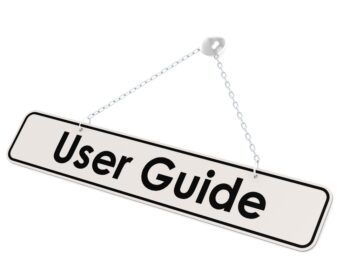Many jurisdictions are turning to the alternative dispute resolution methods of mediation and arbitration to resolve disputed workers compensation claims. Almost all jurisdictions are finding their workers comp board, industrial commission or court system overloaded with workers comp claims needing to be settled. Often the issues preventing the resolution of the claim can be addressed when the employee and the insurer sit down face-to-face to discuss the issues.
To facilitate the settlement of workers compensation claims, the states are recommending or even mandating arbitration or mediation of the claims before they can be presented to the workers comp board, industrial commission or court. [For the purpose of this article, we will use workers comp board]. The arbitration and mediation practices vary by state, but generally arbitration is where the two sides agree on an arbitrator who listens to a presentation by both sides, and the arbitrator makes a decision on how the workers comp claim will be settled.
Mediation is normally a voluntary process where the two sides agree on a mediator, a neutral party, who listens to both sides and attempts to negotiate a settlement of the workers comp claim with the two sides by discussing with each side their strong points and weak points and their positions on the issues. The mediator tries to get the two sides to reach an agreement but does not mandate a settlement of the claim. For mediation to work, both sides must be interested in settling the claim.
Click Link to Access Free PDF Download
“8 ‘Think Outside the Box’ Tactics to Settle Workers’ Comp Claims”
While arbitration is normally used to resolve the settlement value of a claim, mediation can be used for both settlement value and various other issues in dispute including:
- Average weekly wage disputes.
- Disputes in the amount of permanent partial disability.
- Request for change in physicians.
- Appropriateness of medical care.
- Compensability of medical treatments.
- Attorney fee disputes.
- Suitable employment issues.
- Rehabilitation issues.
- Vocational issues.
Arbitration differs from mediation in how the process works. With arbitration the opposing side of the claim is present while each side outlines its position on the issues. With mediation, the mediator normally meets with each side separately and discusses their position on the claim. The discussions with the mediator are confidential and the mediator does not share what the other side has to say without permission to do so.
Whether the workers comp claim is resolved by mediation or arbitration, there are common factors used to determine the settlement value of the claim. These include the nature and extent of the employee’s injury, the employee’s age, the employee’s ability to return to work or to continue to work, the degree of disability the employee has incurred, the need for future medical care and any vocational limitations the injury has caused the employee.
Normally the laws of the jurisdiction will specify where mediation or arbitration will be used. A few states will allow either. Mediation is the more common approach being used in more states than arbitration. In some jurisdictions mediation is mandated while in other jurisdiction mediation is a voluntary process (as a workers comp settlement is reached because both parties want to resolve the claim).
The selection process of an arbitrator varies by jurisdiction, but a common approach is for the workers comp board to give both sides a list of five arbitrators from which to choose. Each side can give a first, second and third preference, while eliminating two of the arbitrators. What normally happens is the plaintiff attorney will select the first, second and third most liberal arbitrators based on prior experience. The defense attorney will select the first, second and third most conservative arbitrators based on their prior experience. The usual result is the third preference for both sides is the same arbitrator and ends up being the one to hear the case. This same process is used in some jurisdictions for the selection of the mediator.
In other jurisdictions neither the plaintiff attorney nor defense attorney has any say in the selection of a mediator or an arbitrator. The workers comp board appoints a knowledgeable workers compensation attorney (who normally is no longer accepting new clients), retired judge or other workers comp expert to act as the arbitrator or mediator. Some state boards appoint an administrative law judge to act as the arbitrator or mediator.
Often the mediation or arbitration is held at the workers comp board, but in some jurisdictions the mediation takes place at the law office of the plaintiff attorney or at the law office of the defense attorney. Some workers comp boards providing the service of an attorney or administrative law judge to act as the arbitrator or mediator compensate the arbitrator or mediator with state funds. In other jurisdictions, the expense of the mediator or arbitrator is agreed upon by the parties and is paid by one or both parties to the mediation or arbitration.
Another area where the states differ in how they handle arbitration and mediation is in regards to who attends the arbitration or mediation. In some jurisdictions only the plaintiff attorney and defense attorney are present with the arbitrator or mediator. In other jurisdictions, the employee, a representative of the employer and the workers comp adjuster are also present for the mediation or arbitration.
It is expected that the defense attorney and/or workers comp adjuster will have adequate settlement authority (based on the insurance company’s settlement evaluation) to settle or conclude the claim at the time of the mediation. This is normally not true for arbitration, as the defense attorney has normally already offered to settle the claim for the amount the insurance company has offered.
Most jurisdictions mandate mediation or arbitration be attempted. If the resolution by the arbitrator is unacceptable to either side, they have the right to appeal to the workers comp board. If the mediation fails to bring about a settlement of the workers comp claim, the claim will be put on the docket for hearing by the workers comp board.
The most appropriate time for mediation (and arbitration to a lesser degree) is when the plaintiff attorney has declined to settle the claim based on the settlement offer from the insurance carrier. While arbitration is sometimes a substitute for a workers comp board, mediation is normally the last opportunity of the two sides to resolve the claim without a workers comp board hearing.
Arbitration and mediation should be used by the insurance carrier to settle the claim or resolve other issues whenever possible. It is normally much more cost effective to use these alternative resolution methods instead of full-blown hearing or trial before the workers comp board.
Author Rebecca Shafer, JD, President of Amaxx Risks Solutions, Inc. is a national expert in the field of workers compensation. She is a writer, speaker and website publisher. Her expertise is working with employers to reduce workers compensation costs, and her clients include airlines, healthcare, printing/publishing, pharmaceuticals, retail, hospitality and manufacturing.
Contact: RShafer@ReduceYourWorkersComp.com or 860-553-6604.
Join WC Group: http://www.linkedin.com/groups?homeNewMember=&gid=1922050/
SUBSCRIBE TO: Workers Comp Resource Center Newsletter
Do not use this information without independent verification. All state laws vary. You should consult with your insurance broker or agent about workers comp issues.
©2010 Amaxx Risk Solutions, Inc. All rights reserved under International Copyright Law.













